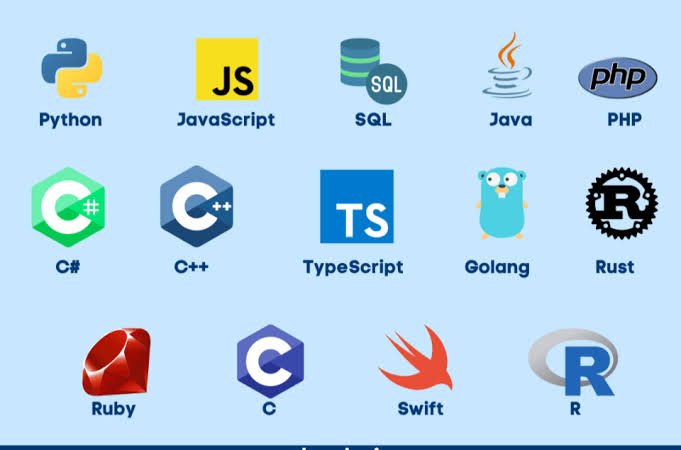
Top Programming Languages for Cybersecurity Professionals in 2024
Created on 5 November, 2024 • Technolgy • 54 views • 2 minutes read
In the ever-evolving world of cybersecurity, staying one step ahead of cyber threats requires not only strategic thinking but also a deep understanding of coding. As a cybersecurity professional.
1. Python: The Cybersecurity Powerhouse
Python stands as one of the most essential languages in a cybersecurity professional’s toolkit. With its simple syntax and extensive library support, Python is perfect for automating tasks, building security tools, and analyzing malware. It's used for:
Scripting exploits and penetration testing
Creating network scanning tools like Scapy
Data analysis for security monitoring
Why Learn It? Python’s versatility makes it a must-learn for anyone entering the cybersecurity field. From ethical hacking to developing defensive mechanisms, Python's capabilities are unmatched.
2. C and C++: Mastering Memory Management
Understanding the intricacies of C and C++ is crucial for roles that involve working closely with system architecture and hardware. These languages help in:
Writing low-level system applications for network security
Analyzing and understanding malware that targets system-level processes
Developing antivirus programs and operating system components
Why Learn Them? C and C++ provide direct access to system memory, giving security experts insights into vulnerabilities like buffer overflow attacks.
3. JavaScript: Defending the Web
With the increasing sophistication of web-based attacks, knowledge of JavaScript is invaluable. It is the most commonly used language for developing and securing web applications. Understanding JavaScript allows you to:
Protect against cross-site scripting (XSS)
Analyze malicious scripts embedded in web pages
Create secure, client-side applications with robust defenses
Why Learn It? As web applications become more complex, so do the techniques used to hack them. Mastering JavaScript can help you understand and mitigate front-end vulnerabilities.
4. SQL: Safeguarding Databases
SQL injection remains one of the most common and dangerous vulnerabilities. As a cybersecurity expert, you must understand SQL to:
Test and secure databases against injection attacks
Perform forensic analysis on compromised data
Extract and manipulate information securely from databases
Why Learn It? Given that databases are at the core of most applications, SQL proficiency is key to securing sensitive information.
5. Assembly Language: Diving Into Malware Analysis
If you aim to specialize in reverse engineering or malware analysis, Assembly language is a must-learn. It is essential for:
Understanding how malicious software operates at the hardware level
Reverse-engineering binaries for in-depth security analysis
Developing intrusion detection systems with a focus on low-level behavior
Why Learn It? Assembly helps you understand the inner workings of operating systems and malware, making you more adept at identifying and neutralizing complex threats.
6. Go (Golang): The New Cyber Defender
Go, developed by Google, has gained popularity for its efficiency and performance. It’s now widely used in developing cybersecurity tools and has been adopted by companies for building scalable and secure network solutions. Go is known for:
Efficiently handling concurrent processes
Creating fast and reliable security tools
Simplifying the development of network security programs
Why Learn It? Go’s simplicity and efficiency make it ideal for large-scale security projects and defensive applications.
7. Ruby: A Hacker’s Friend
Ruby has been a favorite among hackers and penetration testers, especially for scripting exploits and building security tools like Metasploit. It allows for:
Rapid development of proof-of-concept code
Automating repetitive security tasks
Penetration testing and vulnerability assessments
Why Learn It? Ruby’s flexibility makes it an excellent choice for testing and exploiting vulnerabilities in networks.
Conclusion: Choose Wisely and Stay Ahead
Mastering these programming languages will equip you with the skills to understand and defend against cyber threats comprehensively. As technology advances, the demand for skilled cybersecurity professionals continues to grow. Whether you're just starting out or looking to advance your career, staying fluent in these languages will keep you at the forefront of the field.
Popular posts
-
Coin Master free spins & coins daily links January 2023Games • 2,832 views
-
AI in Healthcare: Advancements and ChallengesTechnolgy • 1,630 views
-
7 Simple Steps to Rank Number 1 in Google SearchTechnolgy • 1,313 views
-
E-commerce EvolutionTechnolgy • 1,000 views
-